How IO made the Hitman trilogy, its stealth masterpiece
And why the reviews made the developers cry.
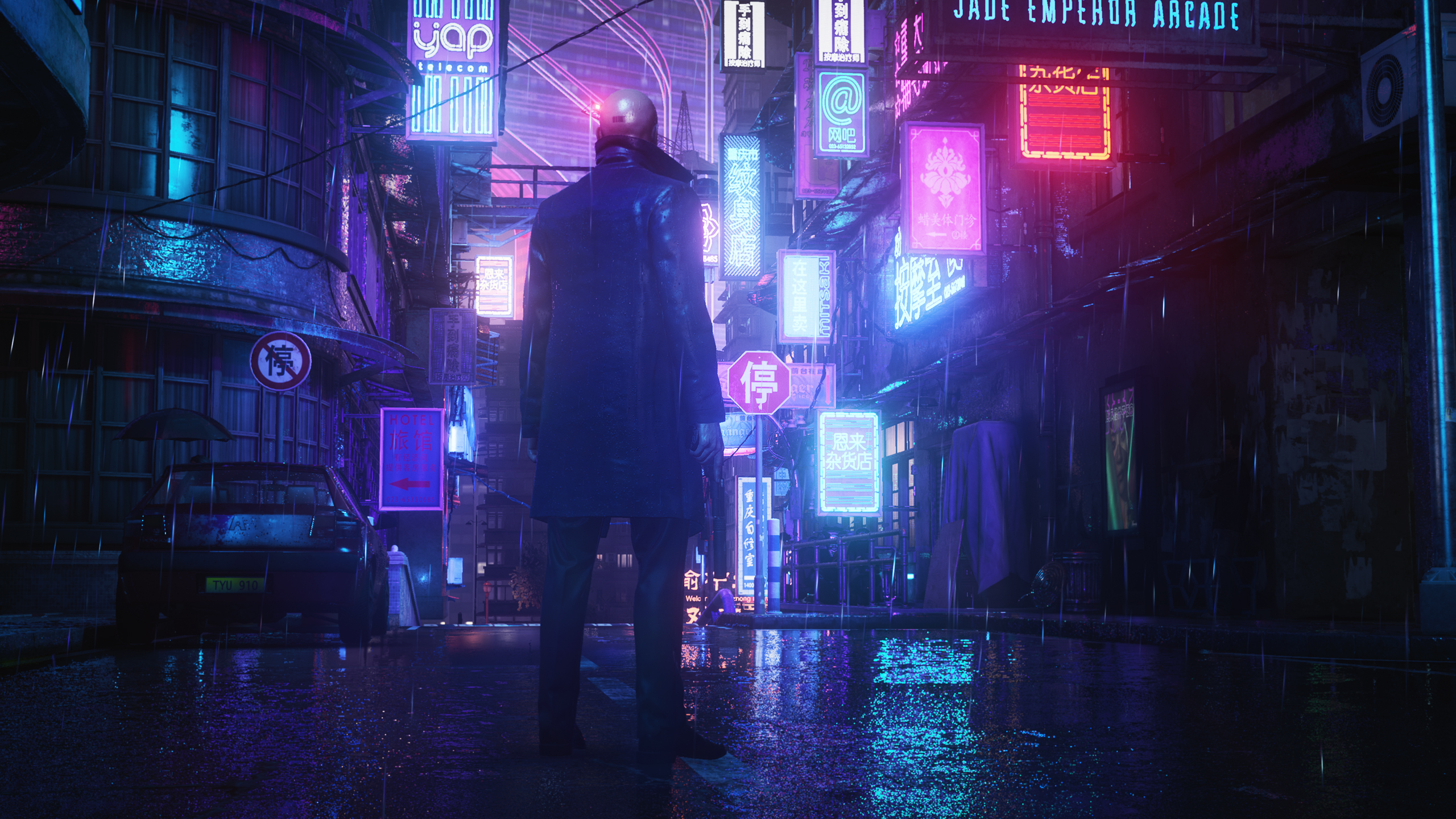
Hitman's World of Assasination trilogy has come to an end, and it went out in fine style. I enthusiastically slapped 90% on Hitman 3, a beautiful, brilliantly designed stealth game that features some of the best levels in the entire series.
Developer IO Interactive is still hard at work fixing bugs and server issues, but I managed to convince game director Mattias Engström, and executive producer Forest Swartout Large, to sit down for a chat about the trilogy, that incredible Berlin level, and the future of Hitman.
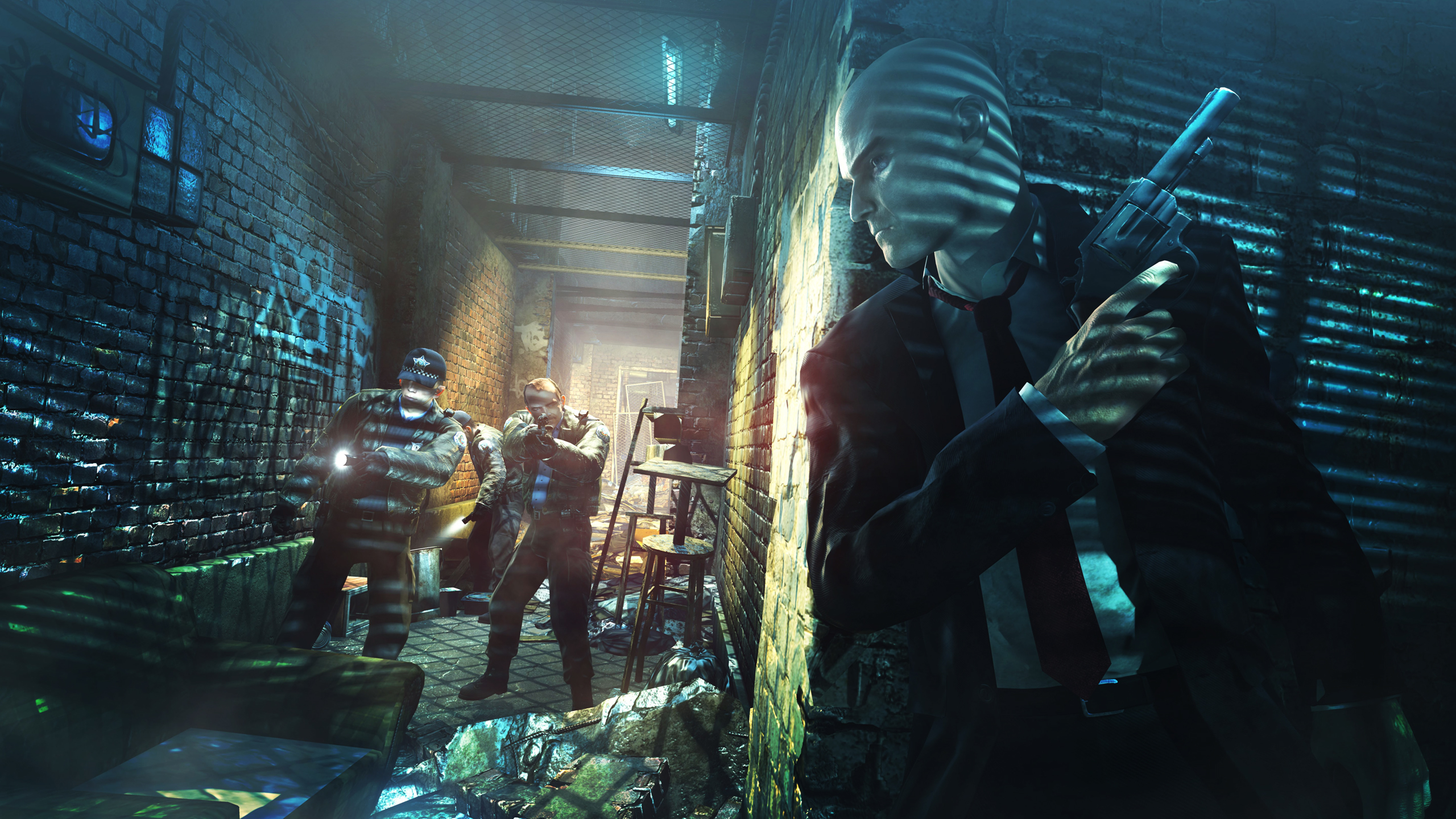
This trilogy kicked off in 2016 with a Hitman reboot, which was originally released episodically. It was a departure from the previous game, Hitman: Absolution, which had a mixed reception (including a pretty critical review from our own Tom Francis), meaning IO had to win back the old fans.
"There's a lot we wanted to achieve with the reboot," says Engström. "There was the globe-trotting element. That is a big part of Hitman, and essential to this World of Assassination trilogy. Travel the world to perform all different kinds of hits, and let the player be creative."
"We took lessons from Absolution," says Swartout Large. "That game was a... departure? Maybe that's not the right word. A tangent? With these games we wanted to go back to the roots of Hitman."
"It's not a Hitman mission if it doesn't have a hit," says Engström. "There's always gotta be a hit in a Hitman game, and I think that was a key takeaway from Absolution. It was more linear, more focused on storytelling."
It's really about finding a space where the target belongs, and it should feel real.
Mattias Engström
This return to open sandboxes paid off. The levels in this trilogy are incredible things; vast, intricate machines with a thousand moving parts that react dynamically to the player in countless interesting ways. I ask the developers about how they build these remarkable puzzle boxes.
Keep up to date with the most important stories and the best deals, as picked by the PC Gamer team.
"It's about making sure there's enough space to explore and to be creative," says Engström. "It also has to be an environment where the target lives or has a purpose. Sometimes we have missions where the target is a little detached from the location, which is always harder to work with."
"It's really about finding a space where the target belongs, and it should feel real," he adds. "Places that might not exist in the real world, but you imagine they could. That's a huge part of designing these levels."
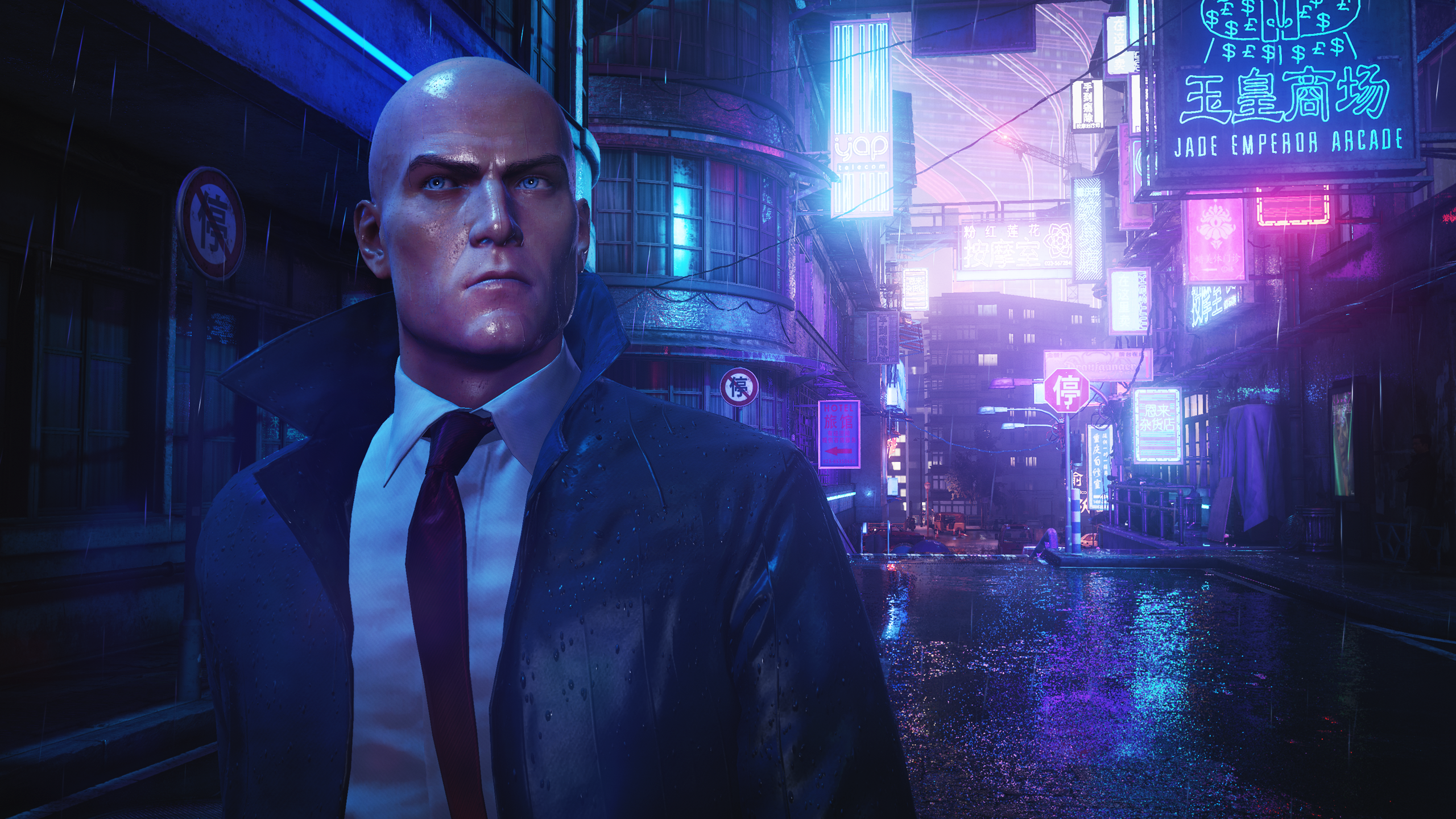
"Visiting locations and gathering reference material is very important too," says Swartout Large. "We have studios in Copenhagen and Malmö, so we're fortunate enough to be able to easily travel around Europe. Our art director and the lead environment artist travel a lot."
"They went to Dubai early in the course of Hitman 3's development," she adds. "They went to the Maldives and Mumbai to research those locations for Hitman 2. We don't want to be perfectly accurate, but we do want to evoke the smells, tastes, and sounds of these places."
Hitman's levels often feature contrasts. There's Marrakesh, which is split between an old, crowded marketplace and a cold, modern Swedish consulate. Chongqing has dark, rain-soaked streets above, and a bright, hyper-modern research facility below. And Sapienza's idyllic Italian coastal town hides a high-tech viral research lab in the caves below.
"We always have a goal to work with contrasts," says Engström. "Not only in a single location, but between the different missions too. If you look at Dubai, it's this brand new building, new money, with gold everywhere. It's very in your face. Then you go from there to Dartmoor, which is this dark, old money mansion. Creating these contrasts is always part of the design process, for sure."
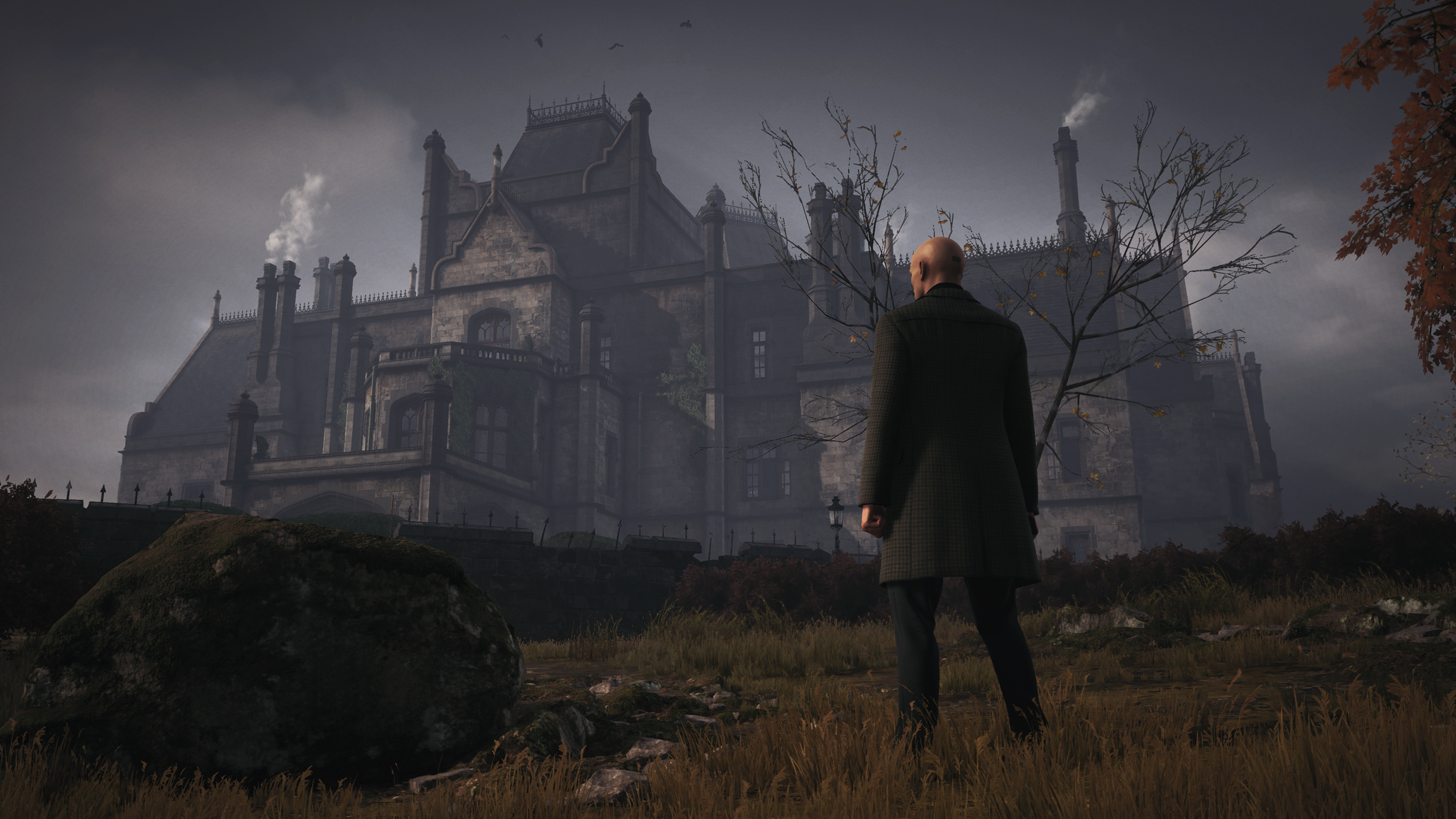
"A great example of a strong contrast within a location in Hitman 3 is Berlin," says Swartout Large. "You start with a cold open at a gas station in the forest, alone. Then you move to the beating heart of the level, the warehouse rave, and it's such a stark contrast to the coldness and isolation of the forest."
Ah, Berlin. The best level in Hitman 3, and if you ask me, the entire trilogy. In this mission, set in a warehouse rave on the outskirts of the city, 47 is being hunted by ten other hitmen—five of which he has to identify and kill. It's a break from the usual series formula, and incredibly atmospheric.
"You start Berlin alone on the road and you're wondering what's going on," says Engström. "But even later, when you're standing in the middle of this crazy rave, you still feel a sense of Agent 47 being detached from what's going on around him. It's hitting the same feeling, but with different notes."
There was so much passion for Berlin, and a lot of people felt really strongly about how it should play
Forest Swartout Large
"We had a pretty good feeling about it quite early on, actually," he says when I ask if the studio expected this level to be so well received. "We have people on the team who are ravers and love the club scene in Berlin. So we have a lot of enthusiasts, and that really helped the level."
"There was location scouting for sure on this one," says Swartout Large. "The main level designer for this mission actually lives in Berlin, and did a lot of photographic reference and recording sounds."
"The feature implementation was pretty late for Berlin,," she adds. "There was so much passion for it, and a lot of people felt really strongly about how it should play and how the targets should be presented. It was probably the mission that had the most expensive effort throughout the entire course of development."
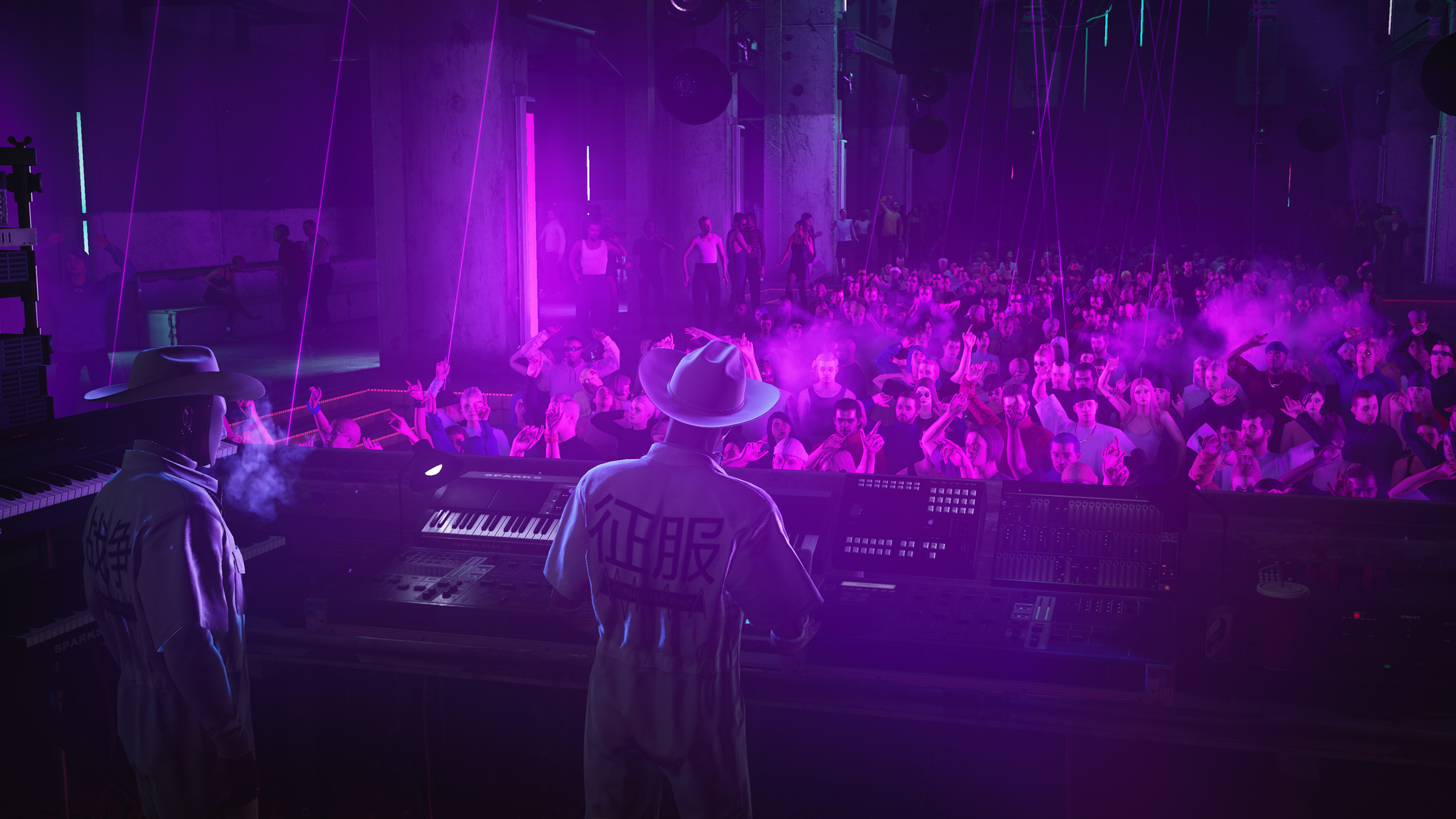
"Yes, definitely," says Engström. "Especially with the target identification and how we would present it, how we would tutorialise it. You don't have a handler, you don't know what's going on when you arrive, so how do we explain this to the player without the common tools we usually have in a Hitman game? It took some time to get right."
I ask the developers how they keep a hold on everything in these massive, complicated levels. There are so many parts to the mechanism, surely it could all fall apart at any moment?
"I'll let you in on a secret," says Engström. "A Hitman level is crap all the way until it's not. And that can be a long time. It's easy to break, and when it's breaking it's awful. That's because there's so much to keep track of."
"There's all these systems, then all the scripting that happens on top of the systems, and then players who can do whatever they want," he adds. "It's a big moving theatre piece that you're moving around in. When the player starts messing with things the systems take over, then it all has to fall back into place and still work. It's a lot of effort to make that happen."
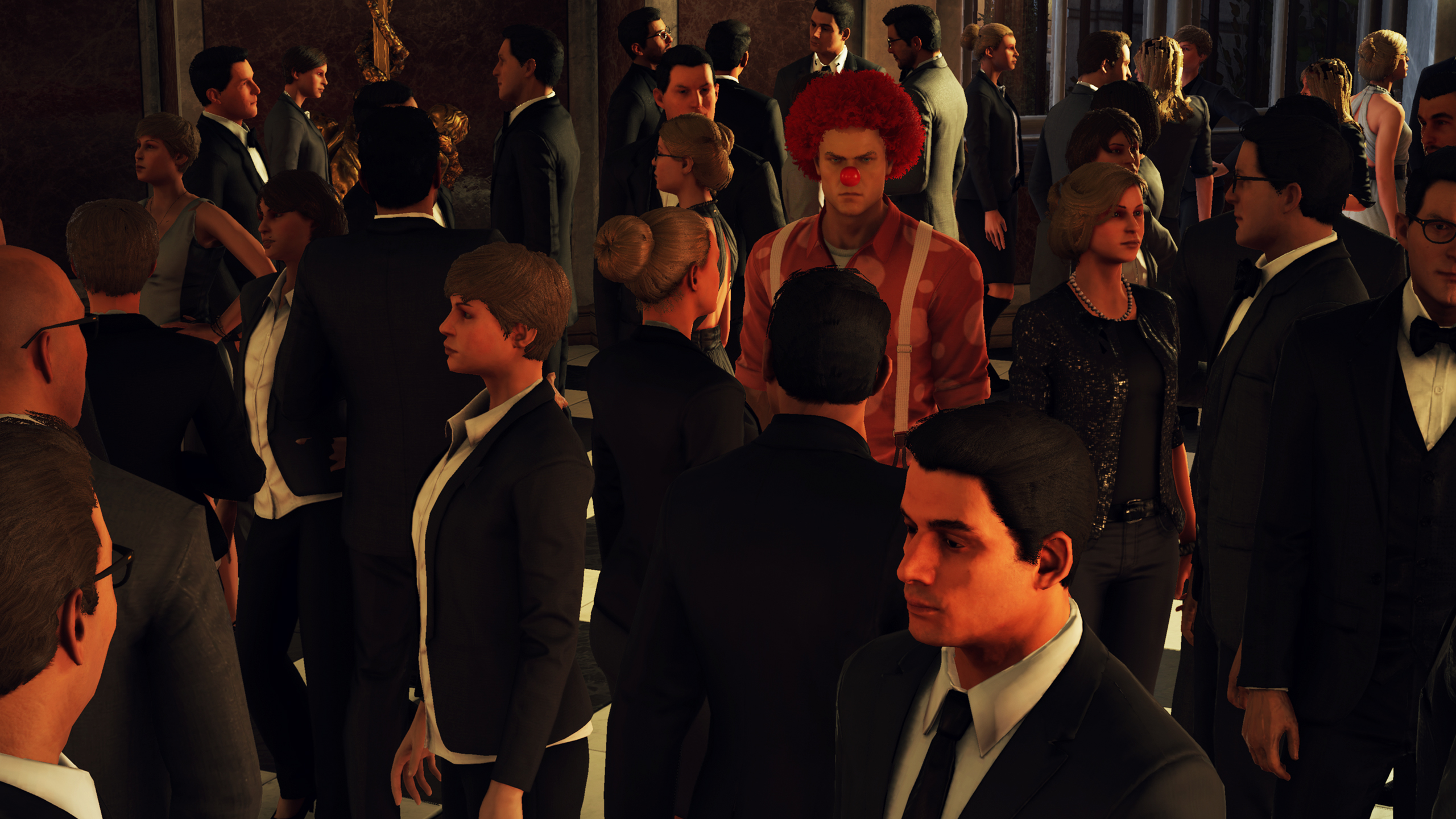
"Any time we're talking about changes to AI behaviour, in particular target behaviour, all of the stakeholders on the team have to come together and analyse and discuss, to make sure we're not abusing the game in a way where the players won't understand or it'll be too broken," says Swartout Large. "Making a Hitman mission is an act of courage and trust."
"You have to trust the systems and you have to trust the other team members, because it can be fragile working on this big clock and tweaking the machinery inside it," she says. "It's a huge relief when it works."
That relief extended to the game's reviews, which dropped a day before the game was released. IO got together and watched the reviews come in, and the studio was delighted when it received high scores across the board. Right now, Hitman 3 has a higher OpenCritic average than the previous two games.
"The day before release we watched the reviews come in together, and it was amazing and joyful," says Swartout Large. "I cried. It was very emotional."
"Yes," says Engström. "I was a sobbing mess."

But that doesn't mean it was time for IO to drop tools and move on to the next thing. Hitman's online features mean the game has occasionally been stricken with server issues, there have been issues with importing levels on PC, and there are of course bugs to iron out for future patches.
"For me and QA and a lot of the team, we didn't celebrate," says Swartout Large. "We were grateful and happy and proud of the reviews, but we still have players that cannot play as intended, so I haven't celebrated yet."
"A lot of the team hasn't," she adds. "But we're hoping to very soon, once all the issues have been sorted. Fundamentally, the game is good. We shipped a good game. We just need to fix the final issues in terms of the server, bugs, and progress being carried over."
Hitman 3 is the most creative and experimental entry in the series yet, and it's clear IO is having fun mixing up its established formula. "A lot of it comes from mastery," says Engström. "We've been able to master the tools, but also how to design a mission. We're pretty confident as a team."
We've been able to master the tools, but also how to design a mission
Mattias Engström
"That allowed us to be more experimental in Hitman 3, and do things we'd only dreamt about before," he adds. "We might not have been able to pull them off back then, but here we had the courage to be a bit different."
One of the best examples of this new experimental streak is the Dartmoor level, in which Agent 47 plays detective and solves a locked room murder mystery straight out of an Agatha Christie novel.
"It's something we've talked about many times in bars over beers," says Engström. "What if we could do a murder mystery, and how would we do it? It's not really core Hitman, but it's also a fantasy a lot of people have."
"Hitman is about role-playing, where you can take a disguise and play the role of a barber, a mechanic, or whatever," he says. "And I think this is the ultimate role-playing fantasy. There are a lot of fans of murder mysteries on the team. The idea really connected with us, so we just ran with it."
"It's been a dream of the team for at least five years," says Swartout Large. "When I joined the team almost five years ago, it was a thing then."
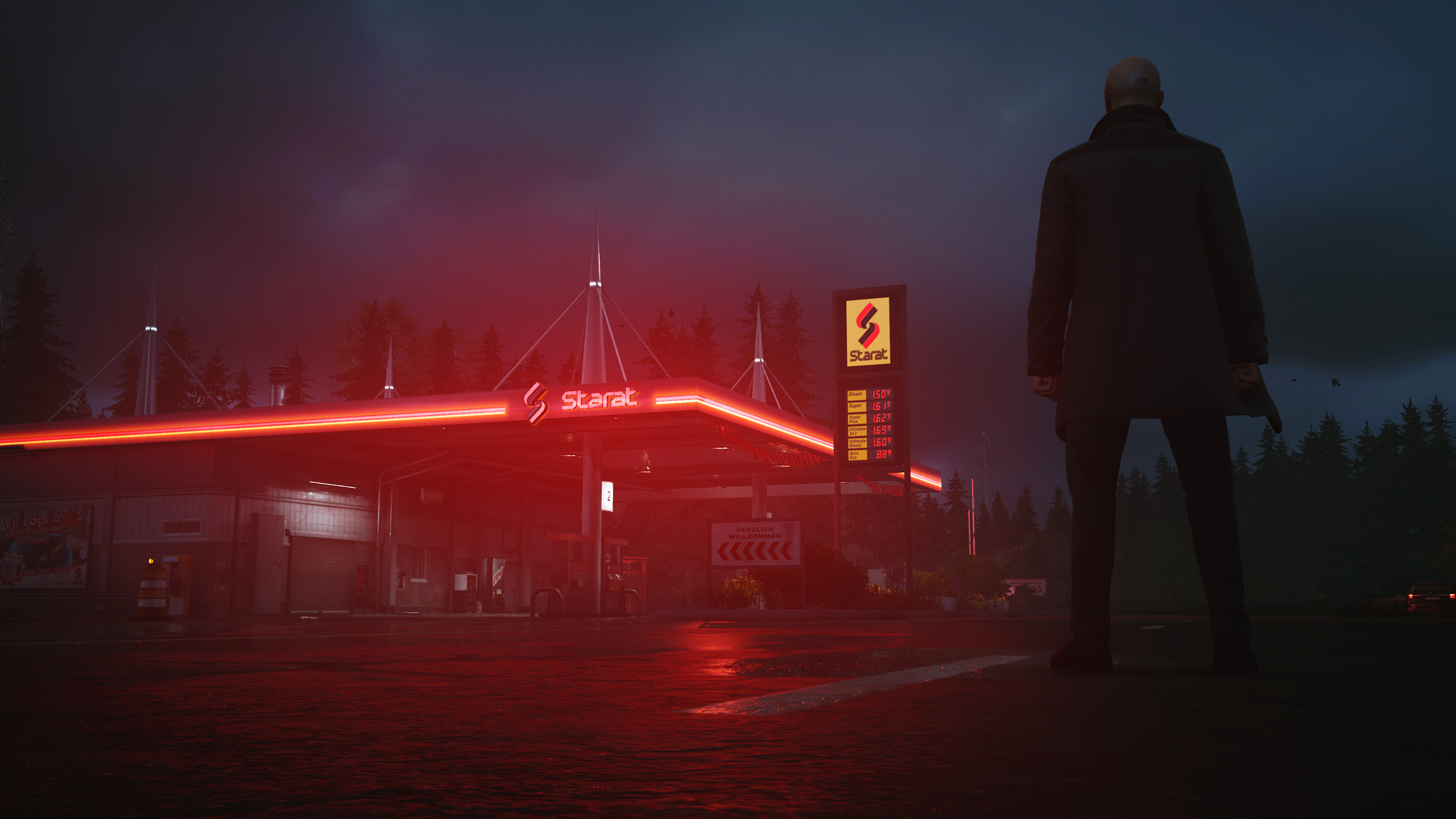
With the trilogy behind them, I ask the developers about what lessons they learned along the way. "I can't remember if I read this in a review, or it was on a forum, but everything in Hitman is a Chekov's gun," says Engström.
"A lesson we've learned is if we put something in the game, and it looks like you can do something cool with it, it should lead to an interesting outcome. If that expectation is not met, it's gonna be a letdown. So we're more careful about putting things in the game world if we can't fulfil that promise."
"Missions can also be too big," he adds. "We definitely reached our limits in Hitman 2 with Mumbai and Miami. It's better to be a little sharper and more focused, to create a more polished and coherent experience. Big levels aren't necessarily bad, they can just be overwhelming and exhausting to replay. We actually see fewer players returning to the bigger missions."
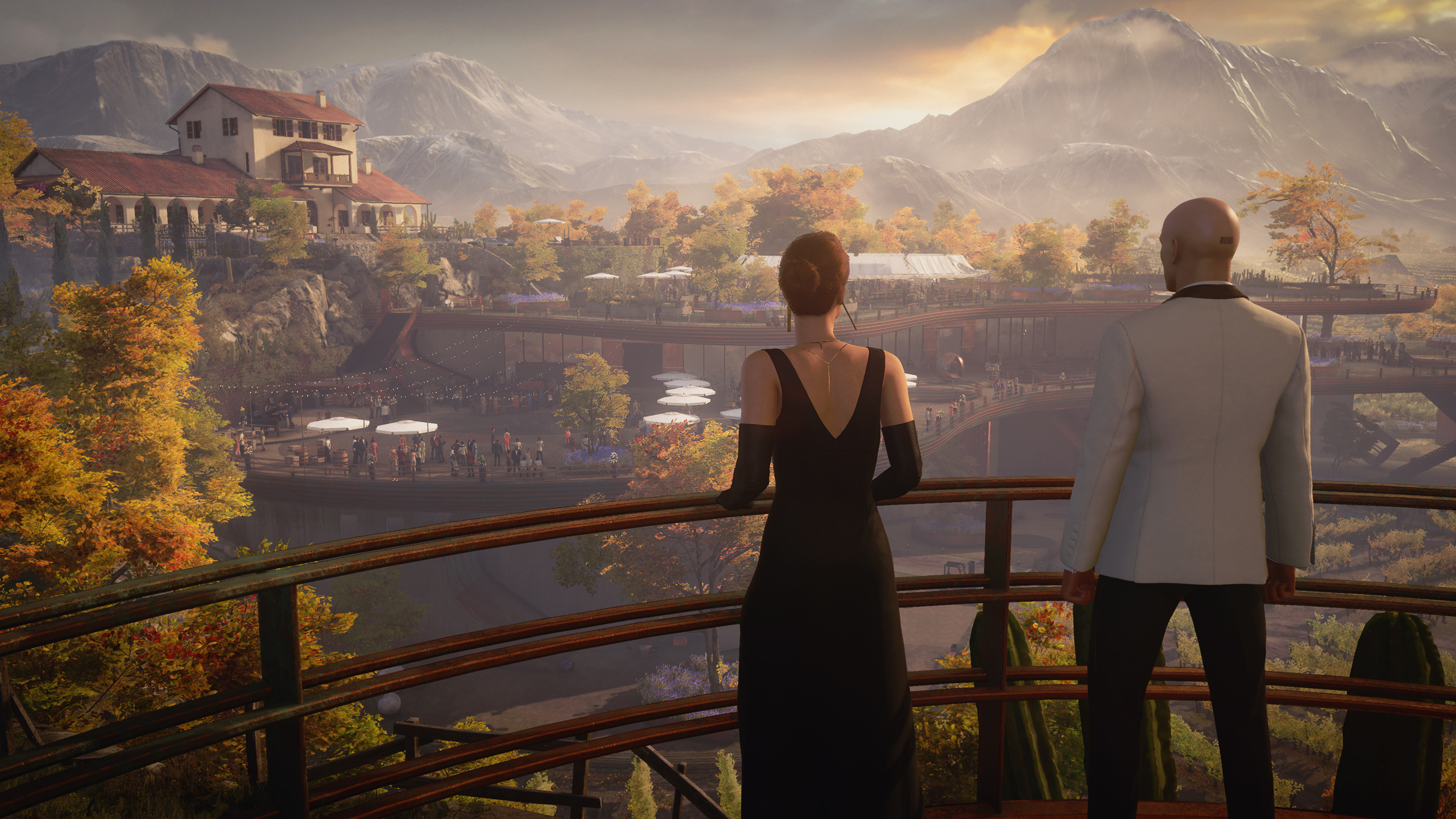
I'd be happy for IO to just keep releasing levels for this iteration of Hitman, and I wonder if the developers feel the same. "Personally, I feel like I could work on Hitman forever," says Engström. "It's an awesome thing to work on. We have a game where one minute you're walking the catwalk at a Paris fashion show, then the next you're playing the drums in a band. It's a series that allows for so much creativity, and that's very satisfying as a developer. I love it."
"I would really love to make an airport level," says Swartout Large. "It's wonderful and fun to dream of new mission ideas and interesting targets and settings. But with this trilogy we wanted to set Agent 47 free, and in many ways, we've set ourselves free too.
"Hitman is our IP. It's IO's IP, and it's important for the studio," she says. "In one way or another we'll keep Hitman alive, and we will keep working on it. But as developers, as creatives, as ambitious people, it's exciting to look to the future, at new platforms and new technologies. Allowing ourselves to be free from the current constraints and formulas lets us dream bigger."
If it’s set in space, Andy will probably write about it. He loves sci-fi, adventure games, taking screenshots, Twin Peaks, weird sims, Alien: Isolation, and anything with a good story.


